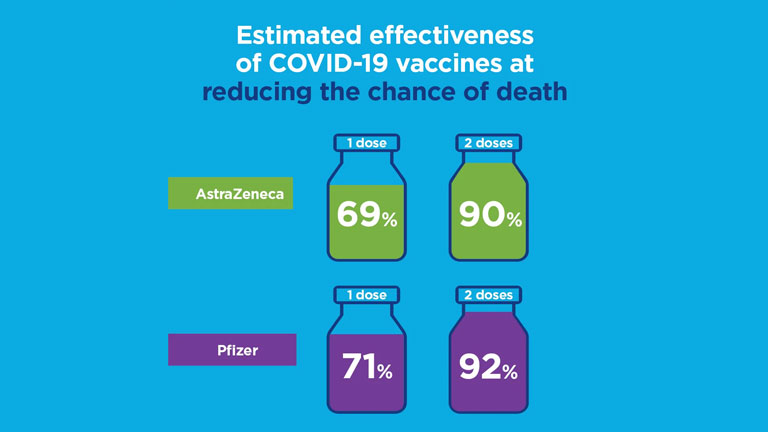Originally posted on theepochtimes.com by Janice Hisle, April 19, 2023
One Moment He Was in Command of a 150,000-Pound Plane, Next He Was Technically Dead
Capt. Bob Snow is a survivor of a cardiac arrest—he believes the COVID-19 vaccine put him at greater risk
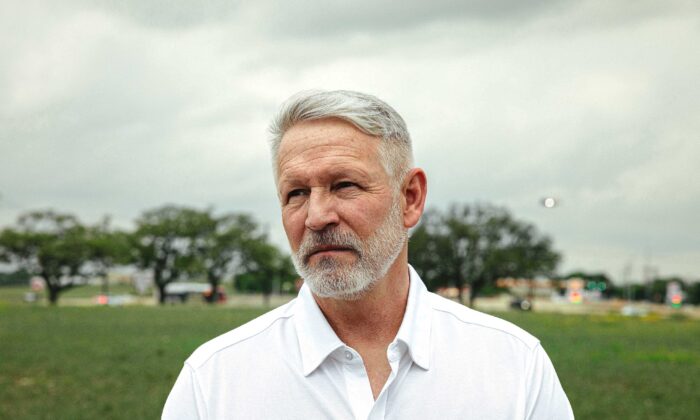 Bob Snow, a longtime pilot with American Airlines, near the San Antonio airport in Texas on March 30, 2023. (Josh Huskin for The Epoch Times)
Bob Snow, a longtime pilot with American Airlines, near the San Antonio airport in Texas on March 30, 2023. (Josh Huskin for The Epoch Times)
On a clear spring day in 2022, Capt. Bob Snow steered an Airbus A321 toward its destination gate, as he had done thousands of times during his 31-year career with American Airlines.
But Snow almost didn’t live to talk about Flight 1067 from Denver to Dallas.
Shortly after arriving safely in Texas, Snow collapsed in the cockpit. He was in cardiac arrest.
The crisis struck without warning; Snow had felt fine that day. He was a healthy, lean 60-year-old with no history of heart trouble.
However, Snow had taken a COVID-19 injection under the threat of being fired from his job; Snow believes the shot put him at greater risk for a sudden cardiac malfunction.
Regardless of what touched off the medical emergency, it rendered Snow unconscious. And if he had blacked out just a few minutes sooner, the plane’s co-pilot (officially called a “first officer”) would have been under extreme pressure to prevent a terrible accident.
Instead, circumstances aligned perfectly to avert tragedy for Snow, his co-pilot, and their planeload of about 175 passengers.
“I count my lucky stars, and I count my blessings,” Snow told The Epoch Times in March as the first anniversary of his near-fatal encounter approached. While grateful for being alive, Snow laments being robbed of his health, which disqualifies him from flying airplanes—a lifelong passion.
In a widely circulated video, shot while he was still hospitalized, Snow became one of the nation’s first pilots to go public with vaccine-related concerns. He remains convinced that more investigation is needed, especially because once-rare reports of pilot incapacitations seem to be happening more frequently. Seven pilot incapacitations made headlines last month.
In a series of exclusive interviews with The Epoch Times, Snow and his family reflected on his brush with death and how it has changed their lives. They also shared their continuing concerns over possible side effects of COVID-19 shots—a taboo topic for many people.
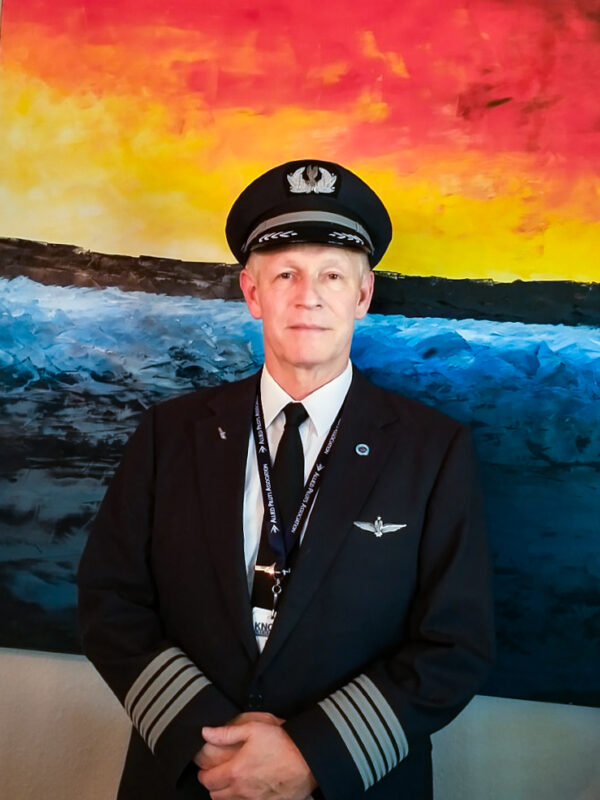
Lucky 21
Even though a year has passed since that Denver-to-Dallas flight on April 9, 2022, it still feels surreal to discuss everything that happened, Snow said.
“And the timeline on this just makes you kind of sit back and go, ‘Whoa,’” he said.
On that sunny, cool Saturday morning, Snow and his co-pilot had divided their flight responsibilities as usual.
The co-pilot was assigned to fly the plane along its 662-mile route from Colorado to Texas; Snow would take control after landing and steer the plane to its gate.
Flight 1067 departed Denver six minutes early.
But if weather conditions had slowed the trip, Snow’s incapacitation could have struck while the plane was airborne at speeds up to 535 mph. Faced with such a startling, stressful event striking a colleague, his co-pilot’s ability would have been severely tested, Snow said.
Controlling a plane while coordinating care for an incapacitated captain would be incredibly challenging if the crisis struck during “a critical phase of flight,” Snow said. Those phases include ascent, descent, and when the plane is at elevations lower than 10,000 feet above ground level.
Flight 1067 could have easily been in one of those critical phases, if the timing hadn’t lined up just so that day.
After flying through cloudless skies, with visibility that extended for 10 miles, the aircraft touched down in Dallas at 9:29 a.m. Central Daylight Time. That was four minutes ahead of schedule, according to FlightAware.com.
The early arrival time was a crucial link in the chain of events preceding Snow’s cardiac crisis.
An unusual gate assignment played a crucial role, too.
Typically, a flight from a western airport such as Denver would be assigned to a gate on the Dallas airport’s west side. This time, air-traffic controllers sent Snow’s plane to the east side. What happened there, at Gate C21, suggests that the number, 21, might be as lucky as numerologists say it is.
‘Fortuitous’ Timing
As he approached Gate C21, Snow felt like he had won “a small victory.”
“We landed … and went straight into the gate,” Snow said.
Sometimes, Snow has waited upwards of 30 minutes for a gate to become available. This time, he was able to “block in” the aircraft just 11 minutes after landing.
“In retrospect, that was very fortuitous,” Snow said. “Otherwise, what happened to me could have happened while I was taxiing the aircraft.”
If Snow had slumped over the controls during those maneuvers, the 150,000-pound plane might have veered into the path of another airliner, ground crew, or airport equipment.
Again, the co-pilot could have saved the day with a quick reaction. “That’s why we have two of us; if something goes wrong with one, the other can take over,” Snow said.
Without incident, Snow guided the plane into position. He and the co-pilot finished their shutdown procedures. Both men got ready to exit the aircraft; they were scheduled to work another flight destined for Salt Lake City, Utah.
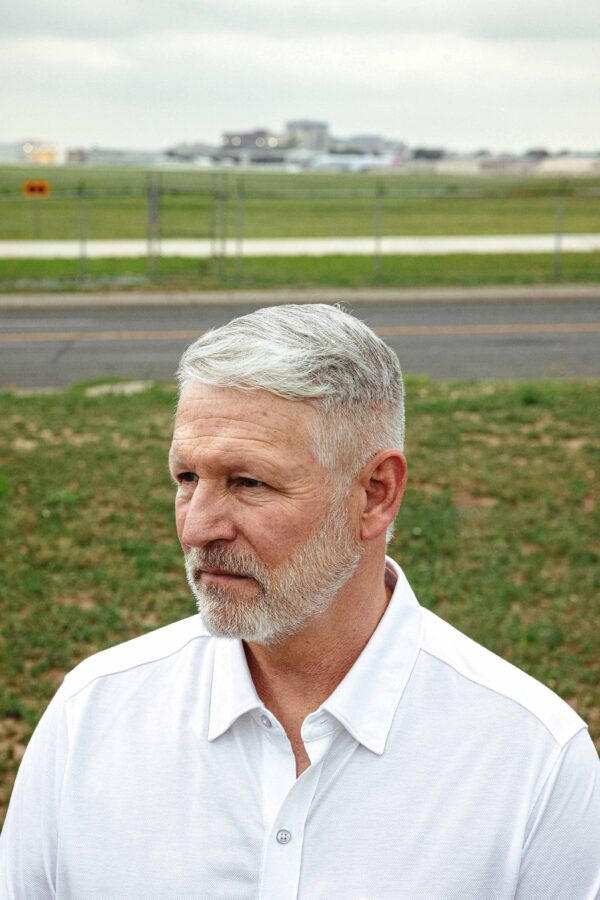
Snow had just grabbed his suitcase. That’s the last thing he remembers doing. “It was ‘lights out,’ like somebody flicked a switch,” he said. “There was no dizziness, no indication anything was going wrong.”
He collapsed, alone, on the flight deck. Just six minutes earlier, he had been driving the aircraft.
Now, he was technically dead.
Medics Nearby
When Snow describes the aftermath of his cardiac arrest, it feels like he’s talking about someone else’s experiences.
“I wasn’t ‘there’ while all of this was going on,” Snow said.
He pieced together a general understanding of what happened, based on records and other people’s accounts.
Snow doesn’t know whether anyone witnessed the moment he collapsed. Typically, a flight attendant stands near the cockpit door, saying goodbye to the passengers, mostly blocking their view of the cockpit.
Still, someone—apparently a deplaning passenger—noticed Snow’s collapsed, motionless body and drew attention to him.
The co-pilot, who had been using the lavatory, saw a disturbing sight when he emerged; he radioed for help.
Two passengers—a registered nurse and a Navy corpsman—performed chest compressions to push life-sustaining blood from Snow’s heart into the rest of his body.
In another stroke of luck, fire and emergency medical crews had been called to a report of a possible fire at an adjacent aircraft. That turned out to be a false alarm.
But that dispatch put medics right next to Gate C21 when Snow collapsed.
Usually, they would have been stationed about six minutes away. By divine providence, “they were almost immediately available,” Snow said.
Snow is convinced that the speedy interventions saved his life because “every minute counts in a cardiac arrest.”
Shocked Three Times
The odds were stacked against Snow’s survival.
Almost 90 percent of the time, people die from sudden cardiac arrests that strike in settings other than hospitals, American Heart Association (AHA) statistics show.
A cardiac arrest is an electrical problem, while a heart attack is a circulation problem, the AHA points out. Although people often use these terms interchangeably, the distinction is important; it determines the type of treatment a patient needs.
At some point, medics connected Snow to a monitor, which showed his heart was in “ventricular fibrillation,” quivering instead of beating normally.
Medics had to shock him three times to reset his heartbeat; they gave Snow a shot of adrenaline and inserted a breathing tube, a medical report shows.
After a seven-mile ambulance ride, Snow reached Baylor Scott and White Medical Center in Grapevine, Texas.
There, doctors were concerned that he could have suffered brain damage while his heart was stopped and blood wasn’t flowing. That’s why they sedated Snow and cooled his body temperature. According to The University of Rochester Medical Center, inducing “therapeutic hypothermia” may reduce inflammation, thus preventing brain damage in cardiac arrest patients.
The Longest Flight
Meanwhile, Bob’s wife, Linda, was at their home in San Antonio, Texas. She was expecting her husband to come home that afternoon.
The family had planned a belated birthday celebration for the youngest of their two daughters. Elizabeth had turned 17 during her dad’s five-day work trip.
Instead of proceeding with birthday plans, Linda Snow fielded a phone call that took her breath away.
“Someone from American Airlines called and said that Bob had had an incident, that they could not tell me what happened … but he was being transported to a hospital,” she said. The airline then arranged a flight to Dallas so she could see her husband.
The oldest daughter, Alexandra, then 20, drove her mother to the San Antonio airport. The 40-minute flight to Dallas felt like “the longest flight I’ve ever been on,” Linda Snow, a former flight attendant, said. “It was like it was forever.”
As the couple’s daughters prepared to depart on a later flight, Linda Snow arrived at her husband’s bedside.
She encountered a shocking sight: He lay motionless, intubated, and hooked up to four intravenous medication lines, monitoring devices, and a cooling machine.
“That was traumatic,” she said, “to see my rock, my husband, the father of my kids, laying there like that.”
The Snows have been a couple since 1992, when they both worked for an airline based in her native country, Iceland; they married in 1999.
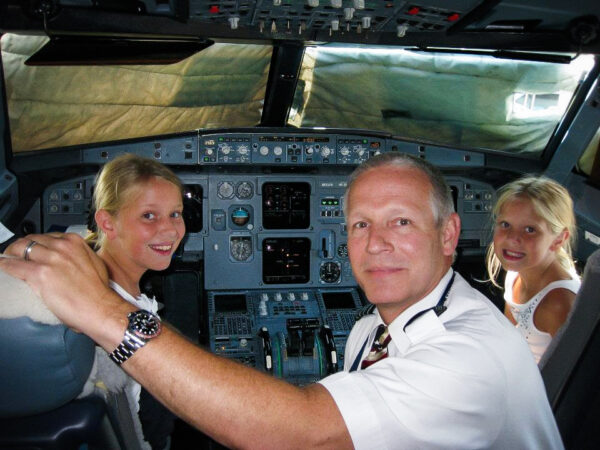
Sensed His Family’s Presence?
Doctors told Linda Snow they intended to keep her husband cool and sedated for about 24 hours. “They said that, when he wakes up, there’s no way to tell what condition he would be in. They couldn’t tell how long he had been without oxygen,” she said.
Snow’s daughters reached the hospital late that afternoon, about three hours after their mother arrived.
They were stunned to see their father connected to so much medical equipment. As her sister, Elizabeth, and mother wept, Alexandra says she felt an obligation “to be strong for them” because of her role as the oldest daughter.
Just after Snow’s daughters and wife entered his room together, “all the monitors started beeping because he was stirring,” Alexandra said.
No one knows why he started moving while under sedation. But Alexandra said, “It would be nice to think that he sensed that everyone was there with him, that his family was there.”
Hours later, mother and daughters retreated to a hotel. They were emotionally drained.
Another Startling Phone Call
This would be a sleepless night for Linda Snow. The next day, April 10, 2022, would begin with another nerve-jangling call on her phone.
Answering at 5 a.m., she heard a nurse saying, “I’ve got someone who wants to talk to you.”
That sounded like bad news. “My heart just sunk. It was like, ‘Oh no. Who wants to call me at 5 o’clock in the morning?’” she said.
“And then I heard Bob’s voice on the phone.” She was elated; her husband had fought his way out of sedation, foiling doctors’ plans.
Relieved, Linda Snow and her daughters returned to the hospital. Although Snow recognized all three of them, he repeatedly asked where he was and what had happened.
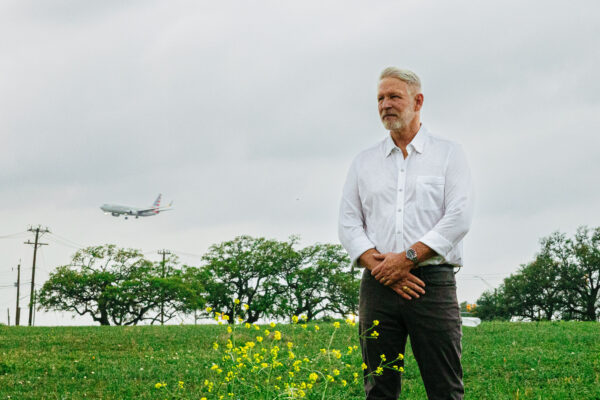
“It felt like we were almost in a time loop,” Alexandra said. “He would ask the questions over and over again, and then we would respond with the same answers over and over again—basically, all day.”
At first, the repetition seemed “funny,” she said. But then, as doctors had warned, Alexandra worried whether her father had suffered brain damage.
Later, however, it became clear that Snow had beaten another set of odds. He suffered no brain damage, unlike many cardiac arrest survivors. “The majority … have some degree of brain injury and impaired consciousness,” the AHA says. “Some remain in a persistent vegetative state.”
Snow’s confusion and memory lapses faded as he recovered from sedation and started to figure out what had happened to him.
“One minute, I’m on the flight deck, looking at my suitcase, and the next minute, I’m waking up confused in a hospital room,” Snow said. “That alone was very disorienting.”
Pre-Injection Apprehension
Soon after he awakened, Snow started denouncing the COVID vaccine as the suspected culprit for his predicament.
Alexandra Snow said her father’s protestations made her think back to Nov. 4, 2021, the day he reluctantly headed to get the shot, just before a deadline to comply with American Airlines’ “jab-or-job” ultimatum.
“I remember standing outside with my mom and watching him drive off. And I just had this bad feeling … I was very nervous,” Alexandra said. “And I know that he didn’t want to get it.”
Snow still remembers “a feeling of oppressive dread” as he drove to a clinic where he would submit to the injection.
“Every fiber of my being was screaming, ‘This is a bad idea to go and get that vaccine,’” he said.
But, as his family’s sole provider, Snow felt compelled to get the shot. And he tried to convince himself that everything would be OK. Snow knew many people who had been vaccinated, “and so far, nothing too bad has really happened to them,” he said.
Body ‘Behaving Strangely’
Post-vaccine, Snow’s vaccinated arm got very sore, unlike anything he had felt after numerous vaccinations that the U.S. Air Force required during his seven-year stint.
After the COVID shot, he would recoil in pain if someone touched that arm; if he rolled onto it during sleep, he awakened to a sharp, stabbing pain. This persisted for 10 days.
But he noticed no other side effects. And, after taking time off and enjoying the holidays with his family in late 2021, Snow thought he was in the clear.
After resuming flying in January 2022, Snow started feeling “weird pains.”
“It felt almost like I pulled something in my side,” he said. It was on the lower right, opposite his injected arm. The pain would last for about a minute, then subside.
After several recurrences, Snow went to a doctor, who referred him to a specialist in digestive disorders; no problems were detected. In hindsight, “I didn’t need a gastroenterologist. I needed a cardiologist,” Snow said.
Snow’s indignation over the vaccine mandate intensified after his near-death experience; he felt it was essential to inform people about what happened to him.
While still hospitalized, Snow asked his wife to shoot a video of him. Once it was posted online, the 23-second clip was shared countless times. It inspired national and international media coverage.
In the video, Snow lifts his hospital gown, revealing electrodes on his torso. “This is what the vaccine has done for me,” he declared. “This is the actual result from the vaccine for some of us—mandatory, no questions asked; get the shot or you’re fired. This is not the American way.”
The Epoch Times received no reply to an email requesting comment from American Airlines, which has used “The American Way” as a slogan.
Probably ‘Vaccine-Provoked’
Establishing a link between a vaccine and a health problem is difficult, especially if the “adverse event” doesn’t follow right away. But if anyone challenges Snow to “prove” that the shot caused his cardiac arrest five months after the shot, he replies: “I need you to prove that it didn’t.”
A doctor who has reviewed Snow’s entire medical history offered his opinion about the cause of Snow’s cardiac arrest. He has “a high index of suspicion’ that this was vaccine-provoked.” The doctor spoke with The Epoch Times on condition of anonymity to protect his career.
Dr. William Makis, who has been following reports of incapacitated pilots, told The Epoch Times: Chest pain can be “referred” to the back—similar to the symptoms Snow experienced for months before his cardiac arrest.
In Snow’s case, at least two specific factors may have made him more susceptible to an adverse reaction from the COVID vaccine.
Early in 2021, Snow had a mild bout with the COVID virus. That summer, he tested positive for antibodies. Adding the vaccine in the fall of 2021 may have multiplied the effects of the virus’ spike protein, Snow said. Makis agrees that’s a good theory.
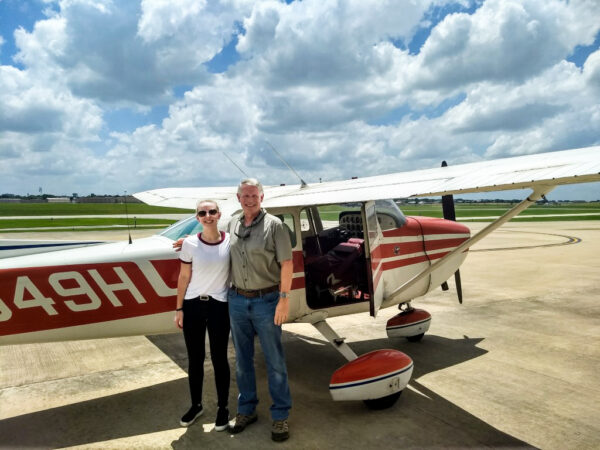
But neither Makis nor Snow has found a single study on that. “The research wasn’t done,” Snow said. “Because we are all one big research project.”
Snow’s job, flying airplanes, also could help make a spike-protein-infected person “more prone” to a cardiac event, Dr. Thomas Levy, a cardiologist, told The Epoch Times.
He said the spike protein is known to cause inflammation, even in “spotty” areas of the heart. Changes in atmospheric pressure could irritate the inflamed areas, “affecting the conduction system of the heart,” Levy said.
Snow also wonders whether his decision to “get it over with, in one shot,” the Johnson & Johnson Janssen vaccine, played a role. Three other vaccines on the market call for a two-dose regimen.
Last month, the U.S. Food and Drug Administration renewed the “emergency use authorization” for the Janssen shot. But additional cautions have been added, warning about possible side effects.
It irks Snow to hear government agencies tout the vaccines as “safe and effective” with a low risk of side effects. He feels that stories like his are discounted and dismissed. Snow said that people who believe they are vaccine-injured are treated like “collateral damage” in a politicized battle over the once-mandated vaccines.
“I felt that I was thrown under the bus and was run over,” he said. “But by the grace of God, I crawled my way out from under the bus, and now I’m going to try to do what I can to continue on with my life and be productive.”
‘Too Political’ to Discuss
For Snow, that includes continuing his advocacy.
“We are hearing more and more about studies showing tens of thousands of people were vaccine-injured, and I feel I need to speak out on behalf of some of them who don’t have a voice,” he said.
“Many people are afraid to say anything, and those who do speak out are often not being heard,” Snow said. “I know because I’ve seen friends and acquaintances don’t want to hear these stories; they almost ‘ghost’ you because it’s ‘too political’ to talk about it.”
Snow has encountered medical professionals who won’t explore the topic with him. And no one from American Airlines or the Federal Aviation Administration (FAA) has contacted him to investigate the circumstances of his cardiac arrest. To him, that’s unconscionable.
In an email to The Epoch Times, the FAA said, “We do not discuss individual cases.” The agency repeated its stock answer: “The FAA has seen no credible evidence of aircraft accidents or incapacitations caused by pilots suffering medical complications associated with COVID-19 vaccines.”
Snow believes investigations are sorely needed. He notes that US Freedom Flyers (USFF), an aviation advocacy group that connected him with medical and legal experts, has been sounding alarms.
Josh Yoder, USFF president, said reports of pilots with scary symptoms, possibly vaccine-related, began trickling out in late 2021.
Since then, the trickle has turned into a flood. Such reports number in the hundreds, Yoder said.
“And those hundreds are just the tip of the iceberg; those are just the ones who are brave enough to reach out,” Yoder told The Epoch Times.
He commended Snow for being an example to others. “He has empowered large numbers of airline employees to take a firm stand against threats and coercion from their employers,” Yoder said. “Captain Snow’s willingness to take a stand for truth has created positive impacts that will be archived in history.”
Yoder and Snow think that many government officials and aviation executives fear being held liable for mandating the shots, so they refuse to investigate suspicions that the vaccines may hurt pilots’ health.
One of the few receptive officials, U.S. Sen Ron Johnson (R-Wis.), recently confronted the FAA about Snow’s case and four others. Dissatisfied with the agency’s response, Johnson accused the FAA of ignoring suspected vaccine injuries among pilots.
Lessons and Losses
Snow’s life will never be the same. Gate C21 could be the last gate he will approach as a working pilot.
The FAA, the same agency that deems the shots safe for pilots, sets pilot-health requirements. Snow is concerned that the FAA might deny medical clearance to him. Yet he is somewhat hopeful, considering that the cause of his cardiac arrest remains a mystery.
A battery of tests, including several types of cardiac imaging, revealed no inflammation and no other problems with Snow’s heart. “The doctors have given no clinical rationalization for why this happened to me,” Snow said. “They say nothing is wrong with my ‘plumbing.’… It makes you wonder what these vaccines might be doing to people, long-term.”
For now, Snow remains grounded, on disability from his job at American Airlines. And a medical device is implanted inside him, ready to shock his heart if it beats erratically again. Regularly, the device transmits data to his cardiologist. As of April 18, there was no sign of any problem.
Snow, who had planned to retire in five more years, struggles with the too-early end of a career he dreamed of since age 7.
In his boyhood, he would gaze into the Texas sky and watch planes crisscrossing from nearby airports and Air Force bases. “I’d see that white line being drawn across the blue and wonder: ‘Where are they going?’” he said. “I always thought: ‘That’s so cool!’”
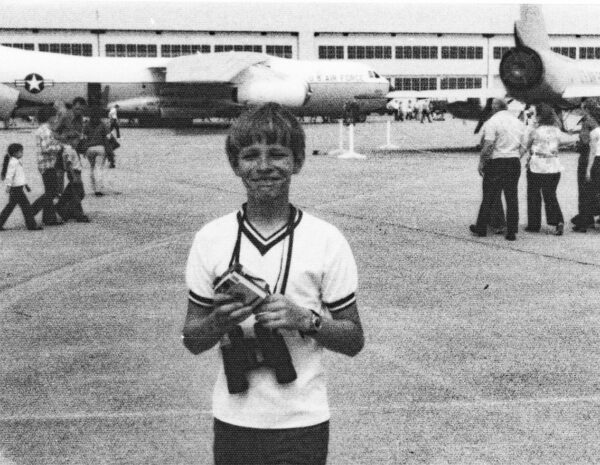
On April 15, 2022, Snow returned home after a six-day hospital stay. Ever since, he kept his trusty suitcase, filled with “pilot stuff,” sitting at the ready on his bedroom floor. Putting it away would have felt too much like a final goodbye to aviation, a career he loves the same way a dancer loves dancing.
“I’ve been robbed of something; it’s been taken from me. And that’s a tough nut to crack, to wrap your head around,” he said, especially because he links it to a step he was coerced to take.
“This wasn’t just an accident,” he said. “This was, you know, somebody forced you to do something—and the results were dramatic.”
He and his oldest daughter lament that he probably cannot sit alongside her as she learns how to become a pilot, too. Someone else might be sitting in the seat where her father belonged.
On the bright side: “My daughters are not without their father; my wife is not a widow,” he said. “I get to spend more time with them, and I’m so grateful for that.”
Snow and his family thank medical professionals and the still-unidentified strangers who rendered aid.
Those people helped give the Snow family a priceless gift: More time together.
“I don’t think it’s still really settled with me that my dad did technically die,” Alexandra said. “Just being able to wake up every morning and still have my dad here with us is a blessing.”
She marveled at the circumstances that came together to help save her father and said, “If any of that had been any different, I don’t think my dad would still be here.”
For all four of the Snows, every day feels more special.
“You know the feeling you’d get as a kid when there would be a snowstorm, and you’d get the day off from school—‘a snow day?’ It was like, ‘Oh yeah! Alright!’ Well, for me, it’s almost like that every day now,” Snow said.
But among all the days on the calendar, one date will stand out from now on. Snow, who turned 61 in January, intends to mark every April 9 “as a different type of birthday—a rebirth day.”
On this April 9, Snow and his family basked in each other’s company. They shared a steak dinner and a few glasses of wine—a small celebration, courtesy of the mini-miracles that came together a year ago at Gate C21.
